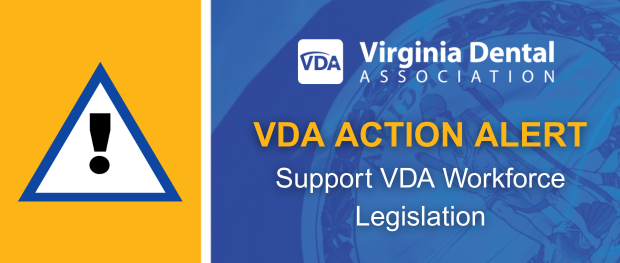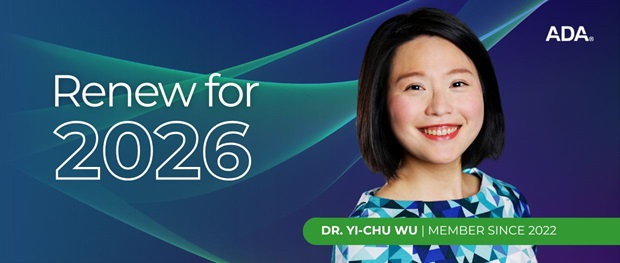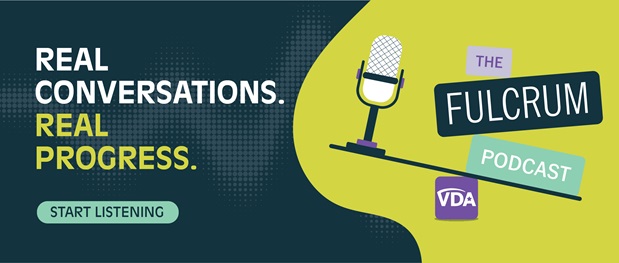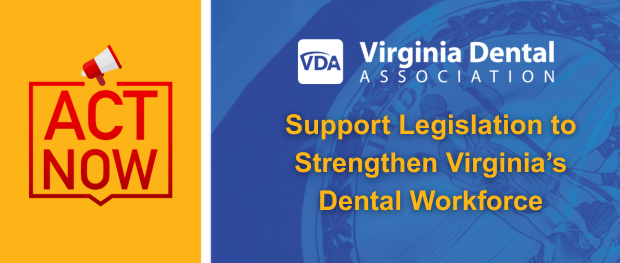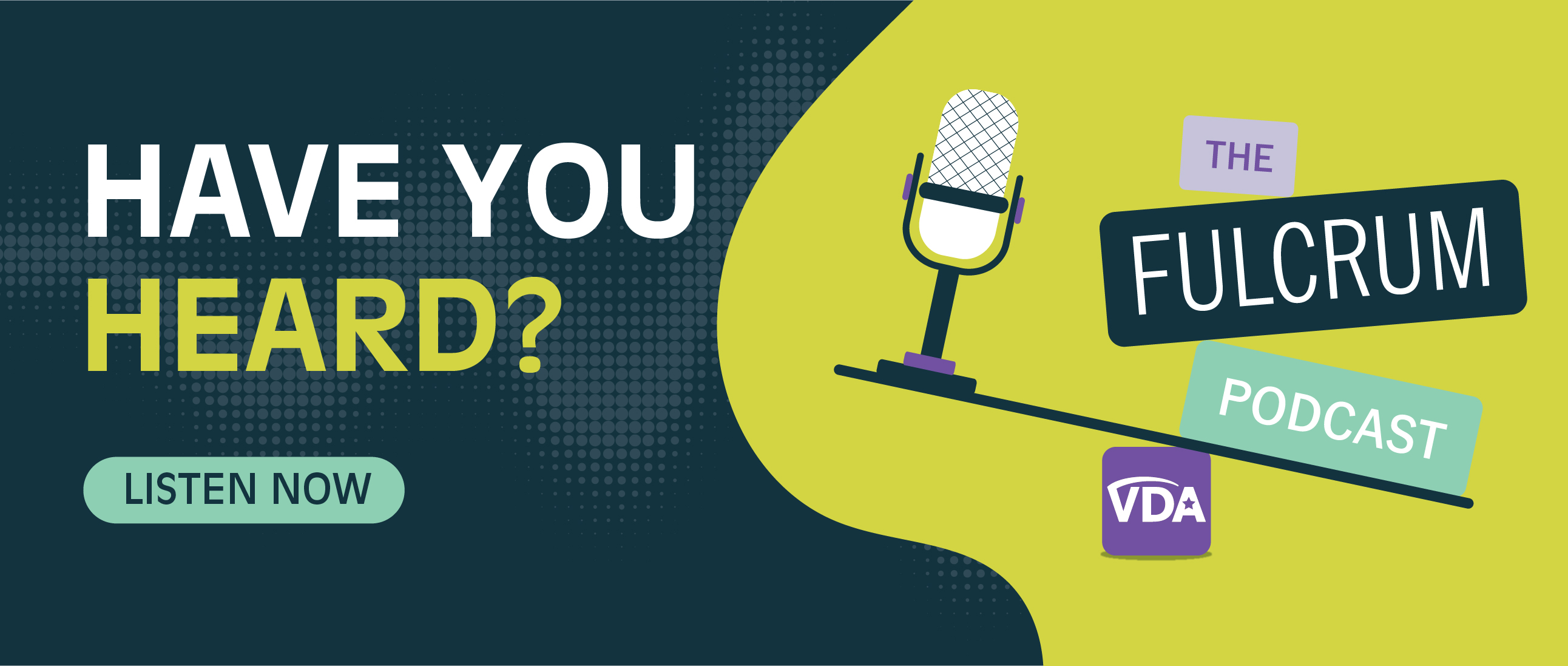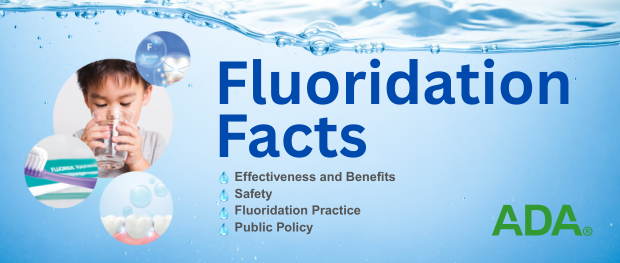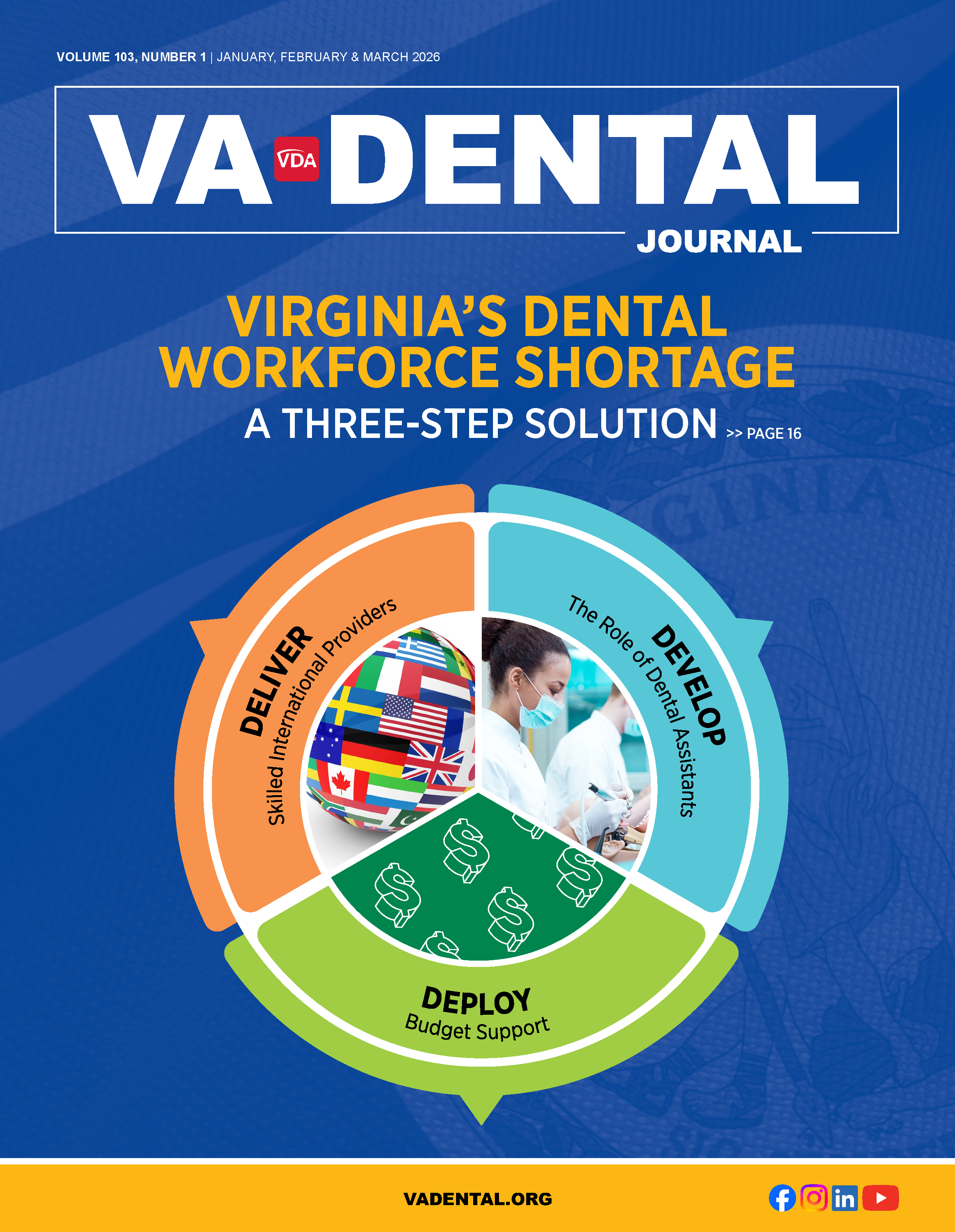
2016 VDA Legislative Initiatives
Non-Covered Services Law De Minimis Clause Amendment: Solution to Dental Plans Covering Small Percentages on Specific Procedures: HB16
The 2010 General Assembly passed non-covered services (NCS) legislation that was intended to ensure that dental plans could not mandate fees for procedures for which they are not paying. Legislators supported the legislation as they believed the practicing dentist should maintain some level of financial control over the practice through billing those not insured appropriately (meanwhile, the fees agreed to by dentists for covered services remained in place).
Since the passing of the legislation in 2010, there have been examples of dental plans covering only a small percentage of specific procedures – to effectively skirt the law and disingenuously claim it is covered. This practice is not being implemented yet in any sort of widespread fashion, but the VDA felt it appropriate to proactively close the loophole now rather than wait until there is a real problem.
The solution is typically referred to as a “de minimis clause” – similar provisions have already been enacted in several states and, when passed, should serve to deter plans from playing games with the intent of the 2010 law. The legislation as drafted will be patroned by Delegate Lee Ware, who carried the House version of the original bill, and it simply adds the underlined and bolded language: Reimbursement payable or paid by a dental plan for covered services shall be reasonable and not provide nominal reimbursement in order to claim that services are covered services under the applicable dental plan. For purposes of this subsection, “reasonable” means the negotiated fee, rate or reimbursement methodology that is set forth in the participating provider agreement and is acceptable to the provider.
This is a very important piece of legislation and is proof positive that our membership is both thoughtful and proactive when making sure insurance companies are held accountable for following both the letter and intent of the laws in the Commonwealth.
Legislation to Amend the Mobile Dental Clinic Regulations
In 2010 Delegate John O’Bannon introduced legislation at the VDA’s request directing the VA Board of Dentistry to make permanent regulations already in place governing the operation of mobile dental clinics. The bill passed both houses unanimously.
You may recall that the original bill was passed to corral the for-profit out of state groups from coming in and ‘cherry picking’ at schools doing just basic things (exam, x-rays, cleaning and fluoride treatments) and then turning the child over to a local dentist with little, if any, direction for follow-up treatment. The 2010 legislation forced operators of mobile dental clinics to find dentists to treat the kids in need of treatment and had them held to the same standard as a fixed base dental office. Prior to the legislation becoming law, the for-profit groups were doing the initial screening, etc. but the kids (many of whom were on Medicaid) needed additional care and showed up at a dental office without the x-rays (or other examination paperwork) – at which point their ‘new’ dentist ended up having to retake x-rays sometimes and do a new exam (required under law) which means Medicaid was paying twice for the same services- not fair to the child, their new dentist or the public.
The law has worked well except in one important situation -- unfortunately, the law as written unintentionally ensnared those Virginia dental clinics that want to do the right thing and see these kids and make sure they receive the necessary care. These dental clinics already are part of a fixed-base clinic that have mobile units to initiate treatment for kids in their unit and then get them to regularly receive treatment at their clinic -- clinics that have actual buildings with addresses (unlike the out of state crowd that was mobile only). We do not feel there is any need to have to register as mobile dental clinics – it’s simply not necessarily when the core of their operation is a fixed address and the mobile units simply facilitate service – especially in rural areas.
This legislation fixes this issue simply by adding an exception to the registration requirement for: 1) Federally Qualified Health Centers (FQHCs) with a dental component that provides dental services via a mobile model to children within 30 miles of the center and 2) free health clinics or health safety net clinics that have been granted tax exempt status. Delegate Bobby Orrock from Caroline and Spotsylvania will be introducing this legislation.
Requests for Budget Consideration
- Fully Fund Medicaid Income Deferral for Virginia’s Dentists
The 2014 General Assembly unanimously passed legislation which enabled the Virginia Retirement System (VRS) to establish a pilot program whereby dentists that take Medicaid patients – through the Smiles for Children program – could deposit a small portion of reimbursed Medicaid payments into tax-deferred VRS 457 Deferred Compensation Plan. Most states limit under 50 years of age to $17K annually and above 50 to $22K annually.
The legislation (specifically HB 147-O’Bannon & SB 412-Hanger) is simply designed to ensure ongoing access to oral health care by giving dentists an additional incentive to maintain current service levels in the Medicaid Smiles for Children program. As has been done in several other states, this objective would be achieved by allowing them to defer paying taxes on limited amounts of Medicaid income through a VRS account. The legislature felt it was an “out-of-the box” solution during tight budget times – designed to ensure the continuity of the program and ongoing access to oral health care, especially in the areas of the Commonwealth that need it most.
VRS worked with the Virginia Dental Association (VDA) and other stakeholders on the legislation and in those discussions VRS requested a delayed effective date of January 1, 2015 which is in the bill along with a five year sunset provision. Unfortunately, DMAS, which originally levied a $50,000 fiscal note on the legislation prior to passage (it passed nonetheless despite the budget woes at the time) has subsequently concluded that the impact is $500,000+. We are unclear as to the specifics of that estimate and understand that in other states the costs have not been anywhere close to that number. No matter, as a result of that note, the program has stalled until it is funded – and that opportunity exists as your team puts together the next biennial budget.
The VDA has asked the McAuliffe Administration to fully fund the program.
- Missions of Mercy (MOM) Project -- $100K in Both Years ($200K total)
Despite the program’s success and accolades, funding uncertainty remains a serious challenge that inhibits our ability to invest for the long-term and ultimately serve more patients. In addition to the vital grant funds that Virginia Department of Health has provided (the funding has been cut in recent years), the MOM program has been supported by tremendous in-kind contributions of professional services, grants, and other contributions. In most years the majority of our operating funds come from corporate and foundation grants, many of which are initial, one-year awards. While we continue to work to broaden the foundation of support, the cyclical nature of such grants leaves much speculation about whether they will continue in future years and have the team scrambling for funds instead of investing in patient care and program operations.
Further exacerbating the funding problem, many of the long-time sponsors are becoming less dependable for various reasons. While the communities in which MOM serves dearly need to be able to rely on the presence of MOM’s annual services, our team needs to be in position to plan for the future by having a level of funding that is certain. For these reasons we are requesting an additional $100,000 in each year of the biennium ($200,000 total) for the project.
Note: The VDA has asked the McAuliffe Administration to consider both of these proposals and add them to his introduced biennial budget.
Taking Action
VDA members and VCU dental students will be visiting the General Assembly on January 22nd for the annual VDA Legislative Day on the Hill, where they will address these issues and advocate for support of our legislation. Please join us! Click here to register today.
YOUR VOICE can and will make an impact. As always, we encourage your participation in expressing concern about these very important issues to your legislators- make a phone call, visit their offices, and send them information on the issue. Please contact Laura Givens at 804-523-2185 or givens@vadental.org with questions, concerns and updates on the progress of these bills. Thank you for your interest and efforts!

